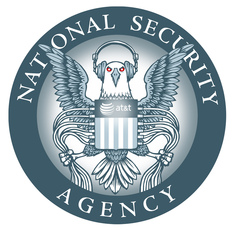| |  “Under our present laws, the only way that such holocausts can be prevented is to anticipate them through the medium of espionage, to be followed by prompt and drastic police action...” The annual report of the New York City Police Department, dated 1920, makes for interesting reading in light of Edward J. Snowden’s decision to betray his |
| | trust as a system administrator at the National Security Agency, queen bee in the modern “medium of espionage.” What he did was tell us how the U.S. government is collecting data on virtually every American without their knowledge. What you have done is debate endlessly whether Snowden is a hero or a traitor while he sits in Hong Kong, acknowledging that if the CIA wants to get him, he will be gotten. If nothing else, the 1920 report shows that we, as a nation, haven’t changed much in nearly 100 years. The tendency to want to sacrifice a bit of freedom in exchange for security apparently is a part of human nature. The above quote is from page 168 of that report, in a section reacting to what, at the time, was the biggest terrorist attack ever on U.S. soil — the bombing of Wall Street during the crowded lunch hour on Sept. 16, 1920. The bomb was aboard a horse-drawn carriage that came to a stop across from the J.P. Morgan Bank before the mechanism exploded. The blast killed 38 people and injured another 143. The crime remains unsolved to this day. But its effects linger. Using strong language, New York City’s police commissioner said it was time “for a special, or secret, police” to follow the “seditious, anarchistic, and dangerously radical elements in this city.” On presumes it would be up to this secret bunch to determine who was dangerously radical, and the chief offered no hint as to how this secret band would be made accountable, or how anyone could be certain the political enemies of City Hall weren’t to be collateral damage. That sort of detail doesn’t matter much in the hot aftermath of a tragedy, one the Washington Post called “an act of war.” The federal Justice Department used the explosion as a reason to begin monitoring the movements of foreign radicals through the relatively new Bureau of Investigation. The head of its General Intelligence Division was a young J. Edgar Hoover, who in a few years would shepherd the bureau into its modern presence as the FBI. Agents didn’t have the wherewithal to track and monitor every phone call in the nation, but there is little reason to argue they wouldn’t have done so if they could. And there is little reason to believe the American people would have felt much differently about it then than they do now. The Pew Research Center for the People and the Press released a poll Monday showing 56 percent of Americans say the NSA’s telephone tracking program is an OK way to investigate terrorists, while 62 percent said it is more important for the feds to investigate threats than it is to worry about intruding on personal privacy. Total safety is, of course, an illusion. It is especially so as long as those in charge are human beings. The IRS, after all, is supposed to conduct its business with an even hand, as well. Snowden is an unusual case. He is no Julian Assange, the Wikileaks founder with no loyalties who wants to spam the world with secret documents. He is no Daniel Ellsberg, with an agenda to stop a war. He is an American who, as he put it, had to decide what was important to him. “If living unfreely, but comfortably, is something you’re willing to accept … you can get up every day, you can go to work, you can collect your large paycheck for relatively little work against the public interest, and go to sleep at night after watching your shows,” he said in a video. Clearly, he didn’t want to do that, and he warns against capabilities that will become only more dramatic and all encompassing — an “architecture of repression,” as he puts it. Hero or traitor, he has given the nation much to consider, even if the questions aren’t exactly new. |

 RSS Feed
RSS Feed

